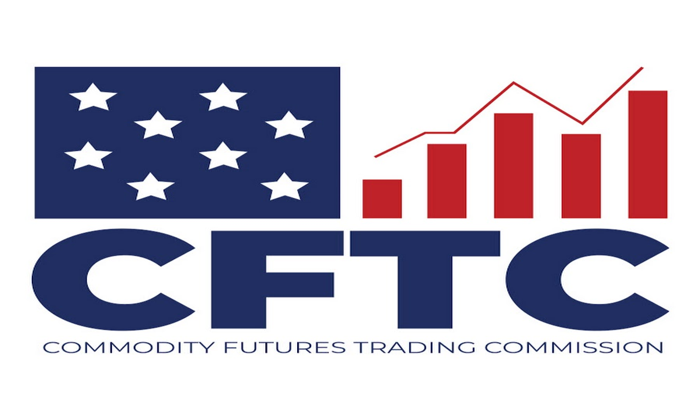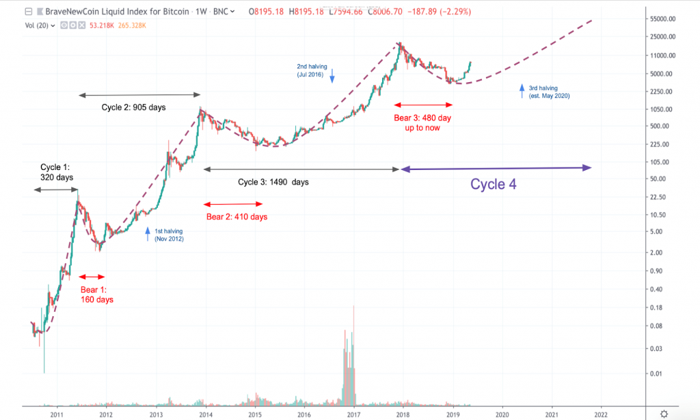The Commodity Futures Trading Commission (CFTC) is poised for a significant shift as its acting chairman, Caroline Pham, reportedly plans to exit the agency soon after the arrival of the new chairman. This potential departure follows the announcement by Commissioner Summer Mersinger that she will leave to head the Blockchain Association. With these departures, the CFTC may find itself dwindled to just two commissioners, creating a precarious situation for the agency’s leadership and future direction in terms of crypto regulation. As the commission grapples with the evolving landscape of cryptocurrency and digital asset policy, its commission structure is set to undergo drastic changes, which could impact the enforcement and regulatory approach to these innovative financial products. Understanding the implications of these transitions on the CFTC’s role in U.S. markets is essential for stakeholders engaged in the futures trading and digital asset arenas.
As the regulatory landscape shifts, attention is drawn to the upcoming changes within the CFTC, known for its oversight of commodity futures markets. With Caroline Pham indicating her potential departure, and fellow commissioner Summer Mersinger transitioning to a new role leading a crypto advocacy group, the agency’s leadership could be left with a significantly reduced commission. This situation raises critical questions about the CFTC’s ability to effectively implement policy and regulation in the increasingly complex world of digital assets. Stakeholders must consider the implications of these departures on the CFTC’s mandate and its future interactions with various market players. The evolving dynamic within the agency could redefine its approach to oversight of cryptocurrency markets and influence broader discussions on national regulatory frameworks.
Future of the CFTC Amid Leadership Changes
The leadership transitions at the Commodity Futures Trading Commission (CFTC) have raised significant concerns about the commission’s future effectiveness and strategic direction. With Acting Chairman Caroline Pham considering her exit and Republican Commissioner Summer Mersinger already set to leave for the Blockchain Association, the agency risks being reduced to a two-member commission. Such a dramatic reduction could hinder the CFTC’s ability to navigate impending regulatory changes, particularly as the landscape for digital assets, including cryptocurrencies, continues to evolve. With only one Democrat, Kristin Johnson, potentially left to influence policies, the balance of regulatory philosophy within the CFTC could drastically shift.
In the context of the CFTC’s commission structure, the departure of key figures such as Pham and Mersinger underscores the importance of swift and strategic presidential nominations to fill these gaps. If the new Republican Chairman, likely Brian Quintenz, does take the helm without a balanced commission, he may find himself wielding absolute control over major policy initiatives. This scenario raises critical questions about bipartisanship in how the CFTC will approach pressing issues surrounding crypto regulation and its broader impact on market participants.
Impact of Regulatory Dynamics on Crypto Markets
As the CFTC confronts potential leadership voids, the influence of regulators on the evolving landscape of cryptocurrency markets becomes increasingly vital. Mersinger’s transition to the Blockchain Association hints at a proactive shift to advocate for clearer regulations that favor the growth of crypto assets. This transition may lead to a concerted effort to urge the CFTC to supervise the regulation of spot markets, signifying a pivotal moment for both market participants and regulators. The agency’s past reliance on enforcement actions, particularly regarding futures trading, could give way to a more collaborative approach that encourages innovation while providing necessary oversight.
The implication of these leadership changes on crypto regulation will likely be felt across the marketplace. Stakeholders from various sectors of the industry are calling for a cohesive regulatory framework that can effectively govern the complexities of digital currencies. As the CFTC’s capabilities are scrutinized and reshaped, its role in developing policies that accommodate the unique challenges posed by assets like Bitcoin and Ethereum will take center stage. Stakeholders should remain vigilant about how these transitions will influence forthcoming regulations and the standards that will govern future trading practices.
Analysis of CFTC Nomination and Appointment Strategies
The future composition and direction of the CFTC remain uncertain as President Trump navigates the nomination process for potential commissioners. If Pham and Mersinger both depart, filling these vacancies will require strategic consideration to ensure a balanced representation that reflects both Republican and Democratic priorities. This becomes even more important in light of new legislative frameworks that aim to grant the CFTC enhanced authority over the crypto industry. The appointment strategy must not only focus on filling immediate vacancies but also consider long-term implications for how effectively the CFTC can address the burgeoning complexities of financial regulations.
The necessity for a diverse and capable commission becomes all the more critical as the CFTC is poised to take on new responsibilities surrounding the oversight of crypto trading. As the legislative landscape evolves, the incoming Chairman will need capable allies on the commission to foster a regulatory environment that can adapt to rapid changes in technology and market structures. To achieve this, the White House must prioritize nominations that balance regulatory rigor with an understanding of the industry’s dynamics, particularly regarding the emerging need for clearer guidelines on digital assets.
Caroline Pham’s Legacy and Future in the CFTC
Caroline Pham’s tenure as acting chair of the Commodity Futures Trading Commission has been marked by a proactive stance toward regulation, particularly in the rapidly changing world of cryptocurrencies. Her decision to reassess the CFTC’s reliance on enforcement actions and emphasize policy reevaluation positions her as a forward-thinking leader, particularly as she may soon depart the agency. As she contemplates her future, the impact of her leadership will likely be felt in the agency’s ongoing discourse around crypto regulation, and her departure could alter the regulatory momentum she has helped establish.
Though Pham’s exit signifies potential changes in the CFTC’s approach, her focus on a more progressive regulatory framework can serve as a blueprint for her successor. The responsibility will fall on the new chairman and remaining commissioners to continue the vision of balancing oversight with innovation, particularly as the crypto industry faces increased scrutiny. Pham’s ability to navigate this complex landscape will leave a lasting impression on how the CFTC approaches its role in regulating digital assets in the future.
Summer Mersinger’s Transition to Blockchain Advocacy
Summer Mersinger’s impending transition from the CFTC to the Blockchain Association marks a significant shift in her career trajectory, indicating a growing alignment between regulatory environments and advocacy for innovation within the crypto sector. With her deep-seated understanding of the CFTC’s operational dynamics, Mersinger is uniquely positioned to champion issues concerning crypto regulation on behalf of the industry. Her forthcoming efforts may reshape how regulatory frameworks evolve to accommodate burgeoning technologies while safeguarding investor interests.
Mersinger’s departure underscores the importance of having advocates within regulatory spaces who understand both the complexities of oversight and the potential for technological advancement. Her appointment as CEO of the Blockchain Association signifies a move towards collaborative advocacy efforts that seek to educate lawmakers and regulators about the unique needs of the crypto sector. As she prepares to lead this initiative, the intersection of policy, technology, and advocacy may foster a dialogue that helps bridge the gap between regulation and innovation.
Implications of Two-Commissioner Model at CFTC
The potential reduction of the Commodity Futures Trading Commission to just two commissioners raises significant questions about its functionality and governance capacity. Most notably, a two-member structure may struggle to achieve quorum for decision-making processes, significantly hindering the CFTC’s ability to enact new policies or respond effectively to emerging regulatory challenges. With only a Republican chairman and a lone Democratic commissioner, the agency’s ability to provide balanced oversight may come into question, raising concerns among stakeholders concerned about regulatory equity.
Additionally, the implications of operating under a two-commissioner model extend beyond administrative challenges to affect the overall regulatory landscape surrounding commodities and digital assets. As industry norms evolve, this diminished commission may find it difficult to address the diverse interests at play among traders and other market participants. The pressing need for cohesive policy direction and regulatory support for sectors like cryptocurrency may not be adequately met, emphasizing the urgency for the President to nominate qualified individuals who can restore the optimal functionality of the CFTC.
Commission Structure Challenges Facing New Chairman
As the CFTC prepares for leadership transitions, the new chairman will face significant challenges inherent in the commission structure, especially with the anticipated departures of both Pham and Mersinger. A commission made up of only two members can lead to difficulties in reaching consensus and adequately representing the interests of the diverse stakeholders engaged with the agency. Without a full five-member commission, the new chairman may struggle to implement visionary policies that address the fast-changing landscape of financial products, particularly in the crypto market.
The upcoming nominations will be crucial not only for filling the immediate vacancies created by the departures but also for shaping the future governance of the CFTC in a way that allows it to respond adeptly to the demands of an evolving marketplace. If the commission remains under-resourced during this period of change, it may lead to delays in critical regulatory advancements and leave the market exposed to challenges that require robust oversight. The new chairman will need to navigate these complex dynamics to reinstate stability and direction within the CFTC.
The Role of Congress in CFTC’s Regulatory Future
As the CFTC’s leadership is on the cusp of change, the role of Congress in shaping the agency’s future regulatory framework cannot be understated. Current discussions surrounding the enhancement of the CFTC’s powers, particularly in relation to crypto regulation, may lead to significant legislative changes that impact how the agency operates. Congress has the potential to provide the CFTC with additional resources and authority, which could better equip it to regulate the complexities associated with digital assets.
The interplay between the legislative branch and the CFTC will be critical as stakeholders across the crypto industry seek clarity and stability from regulatory authorities. The timeline for Congressional actions and nominations will greatly influence both the agency’s capacity to operate effectively and the broader regulatory environment governing cryptocurrencies in the U.S. As new legislation emerges, the CFTC will have to adapt, ensuring that it is positioned to act as a competent guardian of market integrity while fostering industry growth.
Navigating the CFTC’s Future and Industry Expectations
With the looming changes in leadership at the CFTC, stakeholders within the cryptocurrency industry are anticipating how these adjustments will shape regulatory approaches moving forward. There exists a strong desire for clarity on how the commission will address issues such as trading practices, investor protections, and market stability in a rapidly evolving digital landscape. The coming months will see heightened scrutiny as the CFTC prepares to reassess its strategies and priorities amidst personnel shifts.
As industry expectations grow, it will be imperative for the CFTC to communicate effectively and transparently about its policy objectives and regulatory frameworks. Establishing a dialogue with industry participants can help mitigate uncertainties and foster collaborative approaches that align with the agency’s objectives. A well-informed CFTC can better navigate the complexities of crypto regulation, ensuring that its actions are viewed as constructive and supportive as the cryptocurrency market continues to grow and mature.
Frequently Asked Questions
What is the current situation with the Commodity Futures Trading Commission (CFTC) leadership?
The CFTC is currently in a state of transition as acting chairman Caroline Pham is considering her departure along with Republican Commissioner Summer Mersinger. If both leave, the agency may be reduced to only two members, creating challenges for its operations and policy direction.
How will Caroline Pham’s departure impact the CFTC’s future policies on crypto regulation?
Caroline Pham’s potential exit could significantly affect the CFTC’s stance on crypto regulation. As she has taken a proactive approach towards managing crypto matters, her departure may lead to shifts in regulatory priorities, especially if the new chairman has a different vision for the agency.
Who are the key figures associated with the recent changes at the CFTC?
The key figures include Caroline Pham, the acting chairman who is contemplating leaving, and Summer Mersinger, who has announced her plans to lead the Blockchain Association. Their departures could leave the commission with only Democrat Kristin Johnson and the new Republican chairman, significantly altering its dynamics.
What challenges does the CFTC face with a potential two-member commission?
With only two commissioners, the CFTC may struggle to reach consensus on key regulatory issues, especially regarding crypto regulation. This situation could delay important policy decisions and hinder the agency’s ability to implement new initiatives effectively.
What role does Summer Mersinger play in the CFTC’s transition?
Summer Mersinger has indicated her intention to leave the CFTC to lead the Blockchain Association, which could impact the agency’s approach to crypto regulation. Her departure represents a significant change, as she has been involved in formulating regulatory approaches towards the burgeoning crypto industry.
How does the CFTC’s commission structure affect its operations?
The CFTC typically comprises five members, including a chairman and a mix of commissioners from both parties. This structure is designed to ensure balanced decision-making. If only two commissioners remain, as may happen with Pham and Mersinger’s departures, it could limit the agency’s functionality and oversight capabilities.
What implications do the recent developments at CFTC have on cryptocurrency policies?
The departures of key CFTC figures like Pham and Mersinger could lead to a regulatory vacuum, raising questions about the future of crypto policies. The new chairman will need to navigate pressures from both Congress and the crypto industry amidst evolving regulatory landscapes.
What is the CFTC’s role in crypto regulation?
The CFTC oversees derivatives markets, including futures and options on cryptocurrencies. As the crypto industry evolves, the CFTC aims to refine its regulatory approach, particularly in light of challenges posed by digital assets and their trading environments.
Who might replace Caroline Pham as the head of the CFTC?
If President Trump’s nominee, Brian Quintenz, is confirmed as the new chairman, he would replace Pham. His leadership will likely shape how the CFTC addresses regulatory issues, especially with respect to cryptocurrency markets.
What are the CFTC’s priorities regarding enforcement actions in the crypto space?
Under Caroline Pham’s leadership, the CFTC has focused on reducing reliance on enforcement actions and reevaluating its regulatory framework for crypto. The agency aims to adopt a more balanced approach while ensuring adequate investor protection in the evolving digital asset landscape.
| Key Point | Details |
|---|---|
| Departure of Pham | Acting Chairman Caroline Pham is considering leaving the CFTC upon the new chairman’s arrival. |
| Exit of Mersinger | Summer Mersinger plans to leave the CFTC to lead the Blockchain Association. |
| Commission Member Reduction | The commission may be reduced to just two members, impacting its operational efficacy. |
| Nominee Confirmation | If Brian Quintenz is confirmed as chair, he will control a commission of two members: himself and Democrat Kristin Johnson. |
| Impact on Policy | The CFTC’s ability to enforce new policies could be hindered until Senate confirmations occur. |
| Agency Composition | Typically, the CFTC has five members. The current scenario could lead to significant decision-making challenges. |
| Future of CFTC | Concerns arise regarding the direction of CFTC policies without a full commission. |
Summary
CFTC is facing a significant transition with the potential exits of both Acting Chairman Caroline Pham and Commissioner Summer Mersinger, which may lead to a reduction of the commission to only two members. This situation raises critical questions about the agency’s ability to execute new policies and maintain effective oversight over the commodity markets, particularly in the evolving landscape of digital assets. As the CFTC navigates these shifts, the confirmation of the new chairman will be pivotal in determining the agency’s future direction and influence.
The Commodity Futures Trading Commission (CFTC) is at a pivotal moment as leadership changes loom on the horizon. With Caroline Pham, the acting chairman, considering her exit imminent following the appointment of a new chairman, the agency’s future and regulatory direction hang in the balance. Summer Mersinger, another key player, has announced her plans to depart and lead the Blockchain Association, further complicating the CFTC’s commission structure. With only two commissioners remaining, critical issues such as cryptocurrency regulation and market oversight are gravely affected. This transition raises potential challenges for the agency as it navigates the complex landscape of digital asset policy in the U.S.
As the U.S. Commodity Futures Trading Commission navigates impending leadership shifts, the agency faces significant uncertainty in its regulatory framework. The prospects of Caroline Pham’s departure and Summer Mersinger’s transition to the Blockchain Association present a dramatic change in the commission’s dynamic. With a drastically reduced commission structure potentially leaving only two members, essential discussions around crypto governance could become stifled. These changes prompt questions not just about the agency’s core responsibilities but also about its evolving stance on trading, financial oversight, and legislative alignment for cryptocurrency in a transforming marketplace. In essence, the future of this regulatory body is being framed by the mounting pressures of leadership transitions and market demands.















